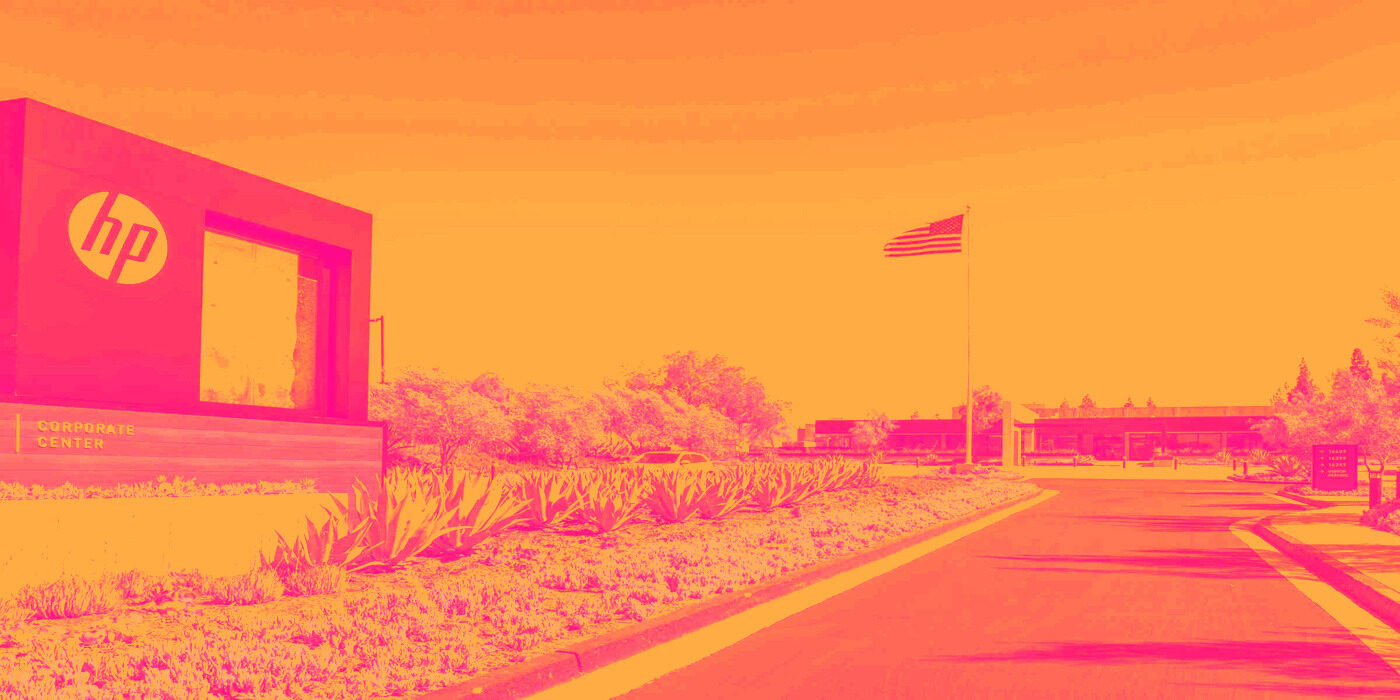
What Happened?
A number of stocks fell in the afternoon session after President Trump threatened a 'massive increase in tariffs' on Chinese imports, reigniting fears of a renewed US-China trade war.
The unexpected comments, made in response to Beijing's plans to tighten export controls on rare-earth minerals, reversed early market gains and sent major indices tumbling. Rare-earth minerals are crucial for components used in the electronics and automotive industries. The tech sector led the losses, with the tech-rich Nasdaq Composite falling 1.7%. The threat jolted Wall Street, sparking concerns that escalating trade tensions could disrupt global supply chains and increase costs for many technology companies that rely on components or manufacturing from China.
The stock market overreacts to news, and big price drops can present good opportunities to buy high-quality stocks.
Among others, the following stocks were impacted:
- Hardware & Infrastructure company HP (NYSE:HPQ) fell 5.4%. Is now the time to buy HP? Access our full analysis report here, it’s free for active Edge members.
- Hardware & Infrastructure company Pure Storage (NYSE:PSTG) fell 4.1%. Is now the time to buy Pure Storage? Access our full analysis report here, it’s free for active Edge members.
- Traditional Media & Publishing company Sinclair (NASDAQ:SBGI) fell 3.7%. Is now the time to buy Sinclair? Access our full analysis report here, it’s free for active Edge members.
- Electronic Components & Manufacturing company Jabil (NYSE:JBL) fell 3.7%. Is now the time to buy Jabil? Access our full analysis report here, it’s free for active Edge members.
- Specialized Technology company Arlo Technologies (NYSE:ARLO) fell 3.8%. Is now the time to buy Arlo Technologies? Access our full analysis report here, it’s free for active Edge members.
Zooming In On HP (HPQ)
HP’s shares are not very volatile and have only had 8 moves greater than 5% over the last year. In that context, today’s move indicates the market considers this news meaningful, although it might not be something that would fundamentally change its perception of the business.
The biggest move we wrote about over the last year was 4 months ago when the stock dropped 8.2% on the news that the company reported weak first-quarter 2025 results: its EPS and EBITDA missed, and it lowered its full-year EPS guidance, pointing to an uncertain macro backdrop and uneven recovery in printing and consumer tech spending. On the other hand, HP narrowly topped analysts' revenue expectations. Still, this was a softer quarter.
HP is down 21.1% since the beginning of the year, and at $25.63 per share, it is trading 34.8% below its 52-week high of $39.30 from November 2024. Investors who bought $1,000 worth of HP’s shares 5 years ago would now be looking at an investment worth $1,292.
Unless you’ve been living under a rock, it should be obvious by now that generative AI is going to have a huge impact on how large corporations do business. While Nvidia and AMD are trading close to all-time highs, we prefer a lesser-known (but still profitable) semiconductor stock benefiting from the rise of AI. Click here to access our free report on our favorite semiconductor growth story.
